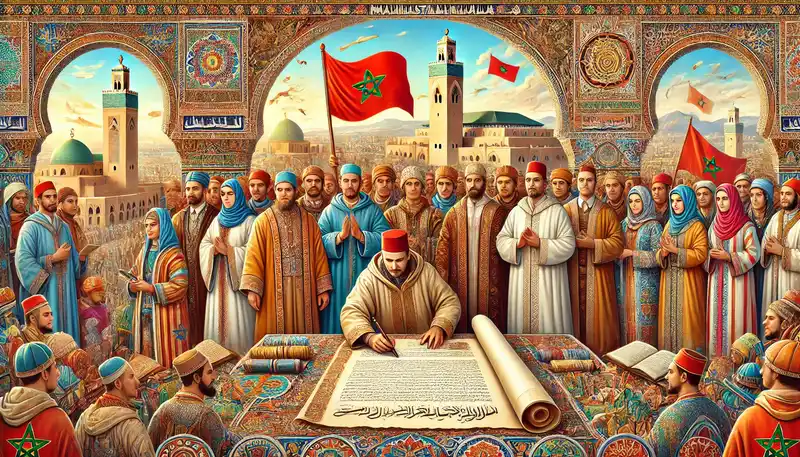What Happens on January 11 in Morocco?
January 11 in Morocco marks the Manifesto of Independence Day, a public holiday honoring the 1944 call for freedom. Discover its history, key figures, and celebrations.

January 11 is a significant date in Morocco’s history, commemorating the Manifesto of Independence Day. It is recognized as a national public holiday and celebrates the submission of the 1944 Manifesto of Independence, a pivotal moment in Morocco’s struggle against French and Spanish colonial rule.
Historical Context
In 1912, Morocco was placed under a French protectorate, with its administration controlling the country’s internal affairs. Meanwhile, Spain governed specific northern and southern regions. This arrangement was perceived by Moroccans as an encroachment on their sovereignty, igniting resistance that grew stronger over time.
The early 20th century saw increased political and social awareness among Moroccans. Under King Mohammed V and several nationalist leaders, a diplomatic and militant effort was launched to reclaim the country’s independence. The Manifesto of Independence, presented on January 11, 1944, marked a decisive turning point in this endeavor.
The Manifesto of Independence
The manifesto was a political document crafted by members of the Moroccan nationalist movement. It demanded:\n
- The end of the protectorate.
- Recognition of Morocco’s independence.
- The establishment of a constitution to guarantee citizens’ fundamental rights.
Key Figures Behind the Manifesto
Many influential Moroccan figures played a critical role in drafting and signing the manifesto, including:
- Allal El Fassi: Leader of the Istiqlal Party and staunch advocate for independence.
- Ahmed Balafrej: Diplomat and a central figure in the nationalist movement.
- Abderrahim Bouabid: Political activist and future Minister of State after independence.
- Mohammed Lyazidi: One of the principal authors of the manifesto.
- El Mehdi Ben Barka: Influential nationalist and intellectual.
Events of January 11, 1944
On this day, the Manifesto of Independence was formally presented to French authorities and representatives of the international community.
The colonial authorities swiftly rejected the demands, triggering protests across cities like Rabat, Fes, and Casablanca. The violent suppression of these demonstrations further strengthened the Moroccan resolve for independence.
Immediate and Long-term Consequences
Following the manifesto’s presentation, many nationalist leaders were arrested or exiled. However, the event marked a turning point in Morocco’s independence struggle. The movement gained momentum, with King Mohammed V becoming a symbol of resistance.
After years of diplomatic pressure and internal resistance, Morocco achieved independence in 1956. January 11, declared a national public holiday, serves as a day to honor those who sacrificed their lives for the nation’s sovereignty.
Modern-Day Celebrations
Each year, January 11 is celebrated with official and cultural events across Morocco. Typical commemorations include:
- Official Speeches: Moroccan leaders deliver speeches emphasizing the historical significance of the day.
- Cultural Exhibitions: Displays, theater performances, and documentaries focus on the nationalist movement.
- Tributes: The nation pays homage to independence heroes.
Current Significance
January 11 is more than a historical date; it serves as a powerful reminder of Morocco’s fight for freedom, sovereignty, and national identity. It also symbolizes the unity of the Moroccan people during critical periods of their history.
January 11 remains a defining moment in Moroccan history, celebrating the resilience and determination of its people in the face of oppression. By commemorating this day, Morocco not only honors its nationalist leaders but also ensures that the values of patriotism are passed on to future generations.